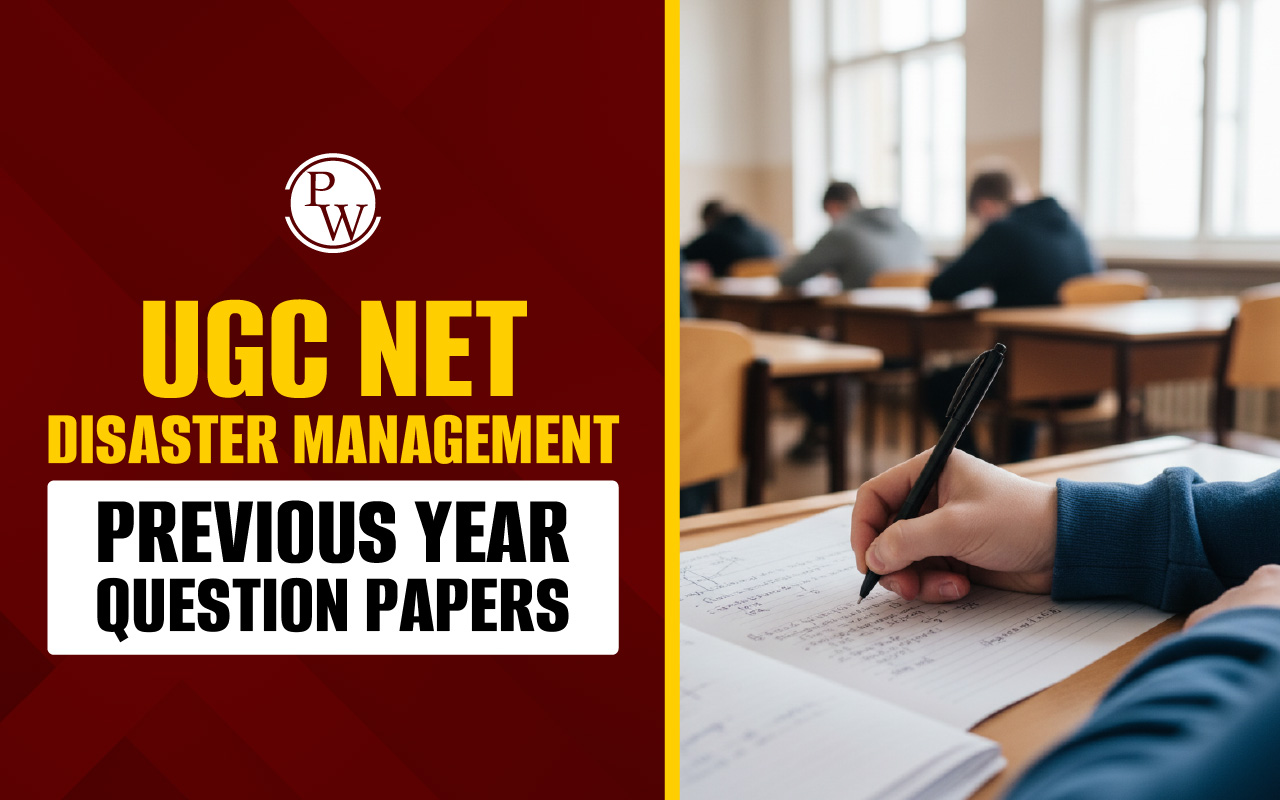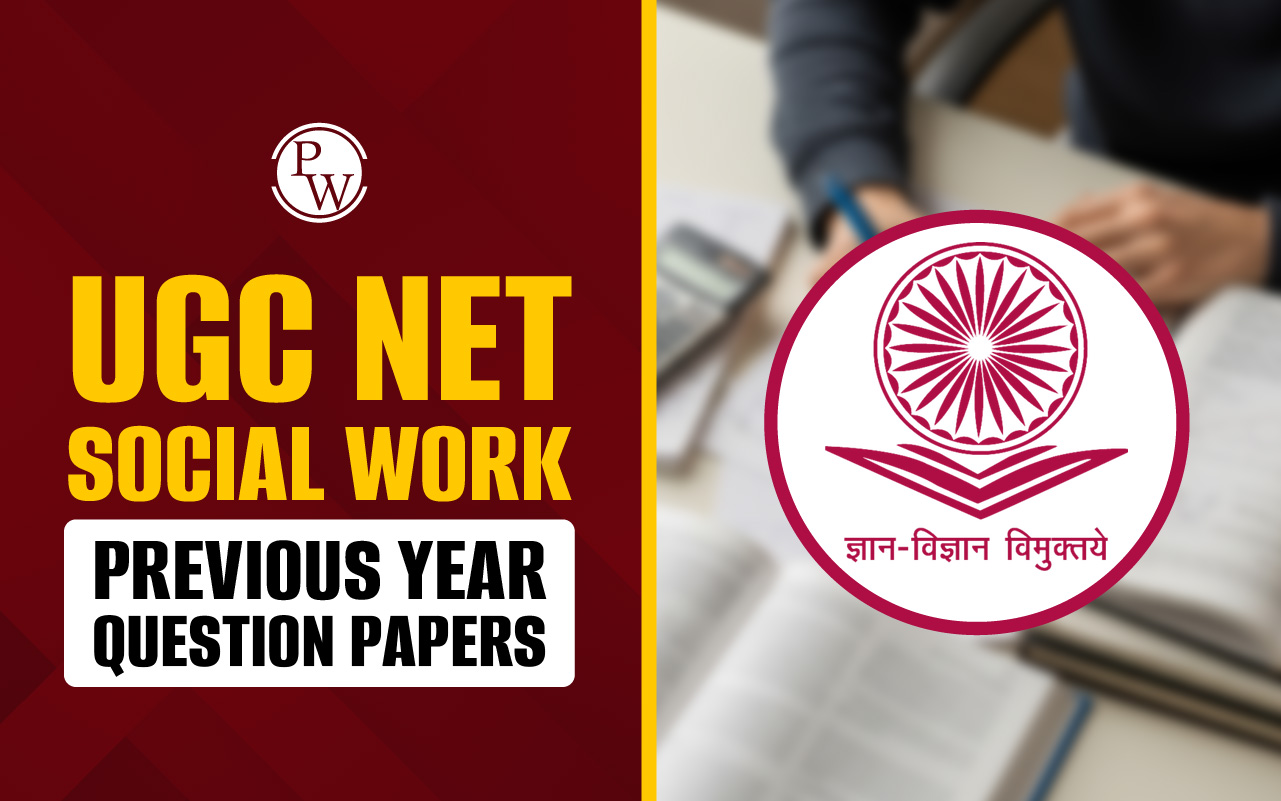
UGC NET Environmental Science Syllabus 2025: The University Grants Commission (UGC) has officially released the syllabus for UGC NET Environmental Science 2025, along with the syllabi for other subjects. It is important for candidates to carefully review the syllabus before beginning their preparation. This enables them to understand the key topics and plan their study approach accordingly. This article provides the UGC NET Environmental Science Syllabus PDF along with a detailed overview of the exam pattern.
UGC NET Environmental Science Syllabus 2025
The UGC NET 2025 exam helps determine a candidate’s eligibility for various academic opportunities, such as Junior Research Fellowship (JRF), Assistant Professor positions, or PhD admissions in Indian universities and colleges. It includes two papers: Paper 1 tests your Teaching and Research Aptitude with general knowledge questions, while Paper 2 focuses specifically on Environmental Science.
UGC NET Environmental Science Syllabus 2025 Overview
Candidates can check this given table for the UGC NET Environmental Science Syllabus 2025 overview:| UGC NET Environmental Science Syllabus 2025 Overview | |
| Conducting Body | National Testing Agency (NTA) |
| Exam Name | UGC NET 2025 |
| Post Category | UGC NET Environmental Science Syllabus 2025 |
| Exam Level | National |
| Exam Duration | 3 hours (180 minutes) |
| Number of Papers | 2 |
| Total Marks |
|
| Total Questions |
|
| Helpline Number | 0120-6895200 |
| Official Website | Click Here |
UGC NET Environmental Science Syllabus PDF
The UGC NET Environmental Science Syllabus 2025 is now available for download in PDF format. This detailed syllabus outlines the key topics and subject areas that will be covered in the upcoming examination, including core concepts of Environmental Science, relevant theoretical frameworks, and analytical components. A thorough understanding of the syllabus will support candidates in planning their preparation effectively. The syllabus is available in English for accessibility and clarity. Candidates can access and download the official UGC NET Environmental Science Syllabus PDF from the link provided below.
UGC NET Environmental Science Syllabus 2025 For Paper 1
Check this given table for UGC NET Environmental Science Syllabus 2025 For Paper 1:| UGC NET Environmental Science Syllabus 2025 For Paper 1 | |
| Unit Name | Detailed Syllabus |
| Unit-I: Teaching Aptitude | Concepts of teaching, learner characteristics, factors influencing teaching, teaching methods and strategies, support systems for effective teaching, types of evaluation in teaching |
| Unit-II: Research Aptitude | Meaning of research, research methods and types, research steps, thesis and article writing, use of ICT in research, research ethics and integrity |
| Unit-III: Comprehension | Reading comprehension passages and answering related questions |
| Unit-IV: Communication | Meaning and types of communication, effective communication techniques, communication barriers, role of mass media and its impact on society |
| Unit-V: Mathematical Reasoning | Types of mathematical reasoning, understanding mathematical aptitude, number and letter series, basic arithmetic concepts |
| Unit-VI: Logical Reasoning | Structure of arguments, types of reasoning (deductive and inductive), analogy, Venn diagrams, Indian logic principles |
| Unit-VII: Data Interpretation | Data sources, data classification, data interpretation techniques, data governance practices |
| Unit-VIII: Information and Communication Technology (ICT) | Basics of ICT, use of the internet, email communication, digital initiatives in higher education, ICT governance |
| Unit-IX: People, Development, and Environment | Interaction between development and environment, environmental issues and policies, environmental protection acts, international environmental agreements |
| Unit-X: Higher Education System | History and evolution of higher education in India, learning programs, educational policies, and governance structures |
UGC NET Environmental Science Syllabus 2025 For Paper 2
Candidates can check this table for detailed UGC NET Environmental Science Syllabus For Paper 2:| UGC NET Environmental Science Syllabus 2025 For Paper 2 | ||
| Unit | Unit Name | Detailed Syllabus |
| Unit-I | Fundamentals of Environmental Sciences | Basic concepts and scope of environmental science, principles of ecology, ecosystems, biodiversity, environmental ethics, and sustainability |
| Unit-II | Environmental Chemistry | Chemical composition of the atmosphere, hydrosphere, and lithosphere; biogeochemical cycles, chemistry of water, soil, and air pollution, chemical toxicology |
| Unit-III | Environmental Biology | Population ecology, community ecology, microbial ecology, environmental biotechnology, wildlife conservation, and habitat management |
| Unit-IV | Environmental Geosciences | Geomorphology, hydrology, natural resource management, geological hazards (earthquakes, landslides), and geospatial technology applications |
| Unit-V | Energy and Environment | Types of energy sources (conventional and non-conventional), energy conservation and management, environmental impacts of energy production and use, renewable energy technologies |
| Unit-VI | Environmental Pollution and Control | Types of pollution (air, water, soil, and noise), sources and effects of pollution, pollution control technologies, environmental impact assessment (EIA) |
| Unit-VII | Solid and Hazardous Waste Management | Waste types and characteristics, solid waste management techniques, hazardous waste management, biomedical waste management, waste minimization, and recycling |
| Unit-VIII | Environmental Assessment, Management and Legislation | Environmental policies and laws (national and international), environmental management systems (EMS), environmental audit, environmental planning and sustainable development |
| Unit-IX | Statistical Approaches and Modelling in Environmental Sciences | Statistical techniques in environmental data analysis, sampling methods, environmental modelling, risk assessment, and geostatistics |
| Unit-X | Contemporary Environmental Issues | Climate change, global warming, ozone layer depletion, environmental health, environmental disasters, sustainable development goals (SDGs), and environmental education |
UGC NET Environmental Science Exam Pattern 2025
Candidates should thoroughly understand the UGC NET 2025 exam pattern to get a clear idea of the question structure, mark distribution, number of questions, and marking scheme outlined by the exam authorities. Below is the table for the UGC NET Environmental Science Syllabus 2025.| UGC NET Environmental Science Exam Pattern 2025 | |||
| Paper | Number of Questions | Total Marks | Duration |
| Paper I | 50 Questions | 100 Marks | 3 Hours (180 Minutes) |
| Paper II | 100 Questions | 200 Marks | Combined Duration for Paper I and II: 3 Hours |
| Total | 150 Questions | 300 Marks | 3 Hours (180 Minutes) |
UGC NET Environmental Science Exam Preparation Tips
Candidates need to check these preparation tips for UGC NET Environmental Science Syllabus 2025:1. Understand the Syllabus and Exam Pattern: Begin by reviewing the UGC NET Environmental Science Syllabus 2025 and exam format. This helps structure your preparation and ensures alignment with official guidelines.
2. Identify Key Topics: Analyze the syllabus to determine high-priority topics. Focusing on frequently covered areas enhances targeted preparation.
3. Use Reliable Study Materials: Refer to authentic and syllabus-aligned resources to build a strong conceptual foundation and understand subject-specific frameworks.
4. Practice Previous Year Papers: Solving past question papers and mock tests familiarizes you with question trends and improves time management during the actual exam.
5. Create and Revise Short Notes: Prepare concise notes for quick reference and schedule regular revision sessions to reinforce your understanding and support retention.
|
UGC NET Exam Important Links |
|
UGC NET Environmental Science Syllabus 2025 FAQs
What is the UGC NET Environmental Science Exam?
What does the UGC NET Environmental Science syllabus include?
How many papers are there in the UGC NET Environmental Science Exam?
What is the duration of the UGC NET Environmental Science Exam?
How many questions are in each paper?










